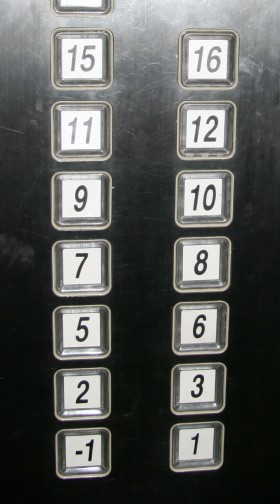Grounds for Skepticism
T
he prevalence of superstitions, the inconsistency of superstitions across cultures, and our ability to disprove some superstitions scientifically when they touch upon the natural world, are powerful evidence that: a) human beings are capable of believing in entities and forces that do not, in fact, exist, and b) we do so all the time.
Many supernatural beliefs directly contradict each other. For example, the Islamic view of Allah is incompatible with the Christian view of the Trinity, so at most one of these can be correct. Even if one or some supernatural forces do exist, it is certain that not all proposed supernatural forces do. If any are true, they’re not necessarily the ones embraced by our particular culture and/or family. The fact that people around us hold a particular supernatural belief does not mean we automatically ought to hold it too.
Did you know that South Koreans refuse to sleep next to running fans in closed rooms? Too risky. Fans sold in South Korea are outfitted with timers so they’ll automatically shut off after a few minutes. What are the South Koreans afraid of?
Fan Death.
Most Americans have never heard of Fan Death, and the reason for that is simple: Fan Death is a steaming pile of complete hooey. It is a lie. It is a phenomenon that does not exist and has never existed anywhere in the world. But South Koreans believe it is real. Millions of South Koreans lie in pools of their own sweat each night, in deathly fear of their own fans. Such is the power of superstition.
But the fear of fans is not nearly so ludicrous as Tetraphobia.
Tetraphobia, of course, is the fear of the number four.
If you live in the west you may never have heard of it, but fear of the number four is common throughout East Asia. There are more people in the world who have an aversion to the number four than there are Jewish people, or Mormons, or Sikhs, or, for that matter, Americans. Far more. The Tetraphobics have the rest of us massively outnumbered.
How did this tommyrot originate? By an accident of the Chinese language. In Chinese and the languages derived from it (Sino-Japanese and Sino-Korean), the word for four sounds similar to the word for death. People began to associate the two together. Four is death. If you wish to live, avoid four. Run from four.

In many Asian countries elevators do not have 4th or 14th floors, and in some buildings there are no floors between the 39th and the 50th.
Before we scoff at this we ought to remember the intense Triskaidekaphobia (fear of the number 13) in our own culture. Our skyscrapers are marvels of modern engineering, but the fact that most of our elevators skip the number 13 proves that we are silly creatures still mired in old fashioned superstitious thinking.
In Tibet, though, 13 is a lucky number. Which culture is right?
You might consider washing a baby’s head with rum to be child abuse, but in parts of England it’s thought to bring luck. In some cultures it is bad luck for a black cat to cross your path. In other cultures the black cat is a good omen. Koreans don’t fear black cats because they’re too busy worrying about frogs with red eyes – it’s unlucky to see one of those. They also shy away from cutting their toe nails at night, lest mice eat the clippings and steal their spirits.
It is safe to conclude that superstitions are culture dependent. And some superstitions clearly contradict each other, and therefore not all can be true. At least some superstitions must be false.
Therefore we ought to approach all supernatural beliefs (including those of our own culture and/or family!) with skepticism.
Our species, for whatever reasons, formulates erroneous supernatural beliefs, holds them vehemently, and communicates them to others promiscuously, and this fault in us appears to be common.
 Copyright secured by Digiprove © 2012-2013 William Bloom
Copyright secured by Digiprove © 2012-2013 William Bloom
